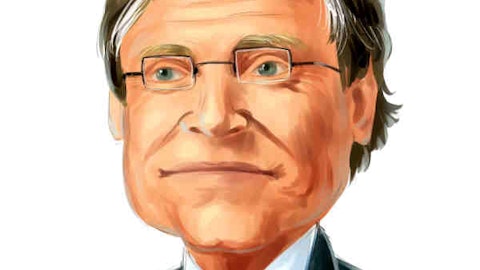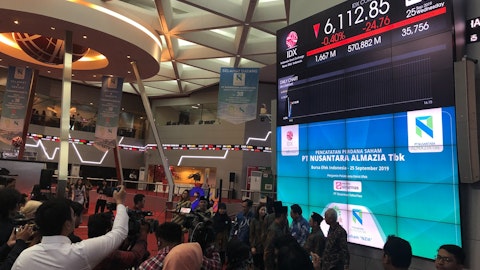Jon Chappell: Brie, there’s a lot of focus on the cost for obvious reasons, but to have the service levels back to pre-pandemic levels, to have the transit time down to two days amid all these cost cuts is a bit surprising. Is that just lack of density on the network because of some of the volume issues? And how do you think about hitting a macro tailwind, getting some volume back in this new cost structure, the ability to maintain these service levels going forward?
Brie Carere: Yes. Thanks for the question, Jon. I actually don’t think it’s surprising. This is getting back to what we do best. We have been known historically for our customer experience and for our service. And we know when the network is running, it’s most productive. Service actually moves with productivity. So, I feel really good about it. I absolutely think that it is sustainable. And in fact, we’re going to continue to do better from a service perspective. So, this is what we said we would do. This is what we knew we would do. We’ve got a little bit more work to do, but it feels really good. And I think the sales team is really loving the momentum that it’s giving them. So, I hope that helps clarify.
Operator: Our next question is from Helane Becker of TD Cowen.
Helane Becker: So, maybe, Brie, this one is for you. I think you talked a little bit about the costs and the progress that you’re making there on showing some improvement. But can you maybe parse out the difference between what you’re gaining on fuel surcharges? And what you’re gaining in the ability to actually raise price? I think you also said something about your uptake is holding out better than you thought it would or maybe holding out better than expected? Or maybe I put those words in your mouth. So, if you could just kind of talk about fuel surcharges versus price maybe there. Thank you.
Brie Carere: Yes, sure. Happy to clarify. So what we saw in Q3 from a yield perspective, obviously, from a yield growth, we were very, very pleased. From a general rate increase, the capture was really strong. In fact, in Europe, it was the highest capture that certainly I have ever seen coming out of Europe. So, I think that the global pricing team and the global sales team are doing just an outstanding job. So, we feel really good about the execution from the GRI. As we look forward into Q4 and beyond, we will see yield growth moderate, but we think the fundamentals are going to stick. The U.S. market right now, from a pricing perspective, is very rational. The team has done an excellent job of aligning price with cost. We’re getting more for peak surcharges.
We’re getting large package surcharges as we should. So, we think the market is rational. We did a good job in Q3 from a capture perspective. But, of course, we will see moderation in yield growth next year as we’re just lapping really, really high increases. I hope that helps.
Operator: Our next question is from Brandon Oglenski of Barclays.
Brandon Oglenski: So, Raj or Mike, I was wondering if you can give us some context around outcomes in Express this quarter. We’re seeing year-on-year margin declines kind of similar to where we had been maybe throughout the year, even though you guys are taking credit for incremental cost out. So, I know Ground and Freight looked a little bit better here, but what, I guess, is holding back Express, especially with similar volume outcomes. I guess, international yields were a little bit softer this quarter, but what else can you attribute that to? Thank you.




